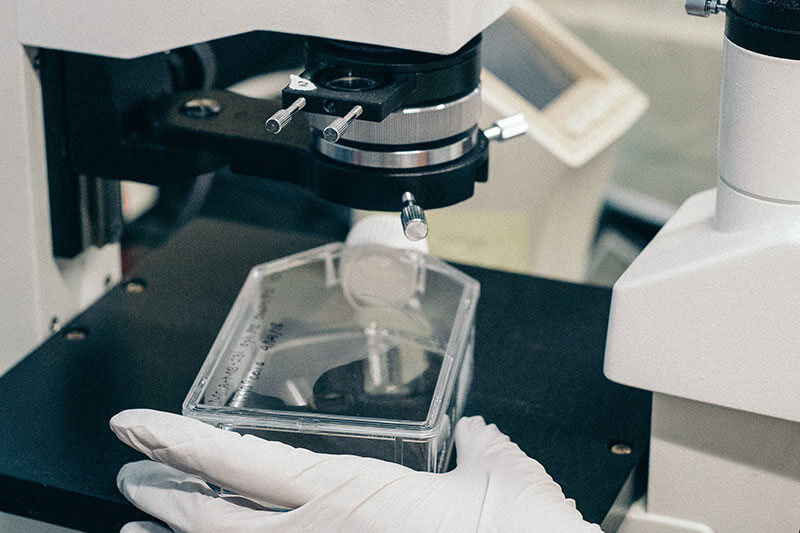Recent
July 23, 2024

Presented by: Tania Dempsey, MD
This session will discuss the role of mast cells and how they are an important component of the innate immune system. Emerging research supports the role of mast cells in the adaptive immune system as well. Mast cells are both sensors and effectors in communication among nervous, vascular, and immune systems. They interact bi-directionally with the nervous system. They are found on the brain side of blood vessels adjacent to astrocytes and microglia and are involved in crosstalk with the various components of the nervous system while also maintaining their role in the immune system. Autoimmunity and Neuroinflammation are two major consequences of aberrant mast cell activity.

Presented by: Geo Espinosa, ND, L.AC, IFMCP, CNS
Low levels of testosterone combined with higher than normal estradiol levels is a leading contributor to cognitive dysfunction, cardiovascular disease, and prostate cancer in men. Despite the availability and growth of bioidentical hormone treatment (BHT) clinics throughout the country, the clinical approach should be aligned with the naturopathic principle: identify and treat the cause.

Presented by:
Petros Levounis, MD, MA
Reflecting sweeping changes in the understanding of gender and sexuality over the past decade, this session will provide an informative and affirming discussion of addiction treatment for clinicians working with patients of diverse gender and sexual identities. The session will focus on the re-emergence of crystal methamphetamine among gay men. Methamphetamine use has grown increasingly prevalent over the past decade, and fentanyl-contaminated methamphetamine has led to a significant increase in overdose deaths. Though no FDA-approved medications exist yet to treat methamphetamine use disorder, new research has demonstrated patient success with culturally sensitive, safe, and effective treatments.
This presentation was recorded at the 2022 Integrative Healthcare Symposium Annual Conference.

Presented by: Lyn Patrick, ND
The majority of the 126 pollutants found in everyone are non-persistent compounds with relatively short half-lives. Air pollutants, bisphenols and phthalates are in this category. For these three compounds avoidance is the first step, followed by reversal of tissue damage. Perfluorocarbons are persistent and are probably the most difficult pollutant to move out of the body. Avoidance methods for these four pollutant classes will be discusses along with the most effective means of reversing pollutant-induced tissue damage. Depuration strategies for perfluorocarbons will also be addressed.

Presented by: Joel Evans, MD
This presentation will share insights about the most important information needed for clinicians as it relates to the functional medicine approach to acute and chronic COVID-19. Starting with science-based recommendations to improve resistance to infection and improve resilience and recovery if infection does happen, the latest strategies will be discussed to help clinicians understand, prevent, and treat the many symptoms of chronic COVID-19.
This presentation was recorded at the 2022 Integrative Healthcare Symposium Annual Conference.

Clinical Applications of CBD and other Cannabinoids and Terpenes

Presented by: Kevin Hill, MD, MHS
With cannabis becoming more readily available in multiple states, healthcare professionals need to have the most updated information available on cannabis and cannabidiol to help patients make informed decisions. This presentation will provide an overview on the state of the science for cannabis and cannabidiol. Both the risks and benefits of cannabinoids available in the United States will be covered.

This issue highlights integrative leaders and initiatives to improve the delivery of integrative healthcare.

Presented by: William Seeds, MD
Improved cellular efficiency has the ability to promote favorable outcomes for metabolic, infectious, and autoimmune disease regardless of the etiology. Metabolic flexibility of the cell modulates interaction of cell metabolism and two-way communication with the innate and adaptive immune system. Loss of metabolic flexibility leads to changes in thermodynamic ratios of nucleotide coenzyme couples NAD/NADH,NADP/NADPH,ADP/ATP and AcetylCoA/CoA in the nucleus, mitochondria, peroxisome, and cell cytoplasm disrupting cellular homeostasis. In this presentation, differences between a healthy cell vs. inflamed cell are examined, as well as the relevant pathways of returning to homeostasis.

How to Maintain Healthy Vision with Natural Eye Care